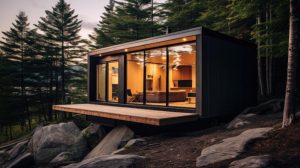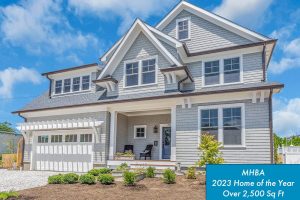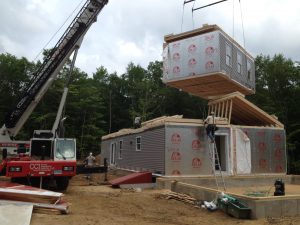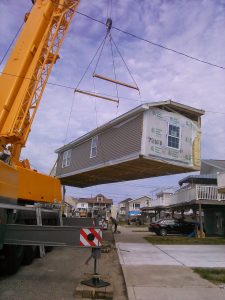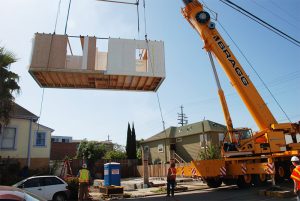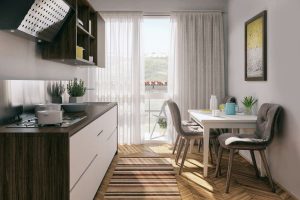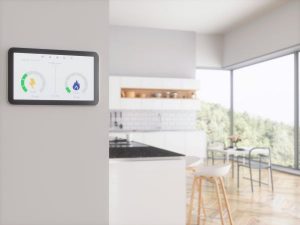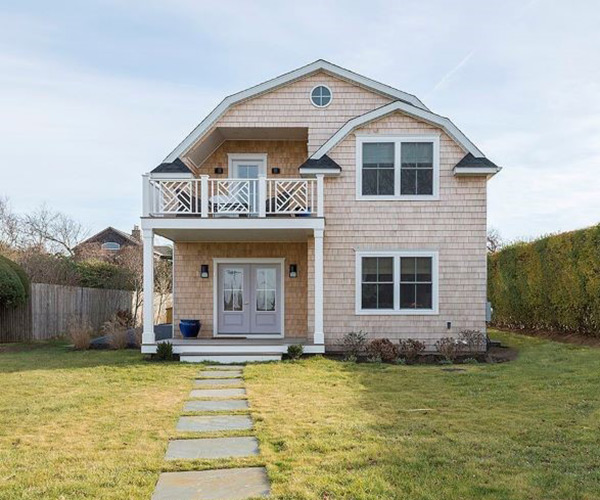
We’ve all heard the statistics about how far behind our country is falling in terms of availability of affordable housing inventory. Short of re-writing the Low-Income Housing Tax Credits (LIHTC), here are three ways modular construction can help fill the gap within the existing rules.
Accessory Dwelling Units
An accessory dwelling unit (ADU) is a smaller, independent residential dwelling unit located on the same lot as a stand-alone (i.e., detached) single-family home. ADUs go by many different names throughout the U.S., including accessory apartments, secondary suites, and granny flats. Internal, attached, and detached ADUs all have the potential to increase housing affordability (both for homeowners and tenants), create a wider range of housing options within the community, enable seniors to stay near family as they age, and facilitate better use of the existing housing fabric in established neighborhoods. (source: America Planning Association).
In most municipalities across the country, zoning rules prohibit the placement of manufactured housing in certain neighborhoods for fear of lowering overall property values. But what about IRC-compliant dwelling units, reviewed and approved in a factory-controlled setting prior to placement? The modular construction industry could provide thousands of these units annually to help address housing needs. The modular model facilitates resilient, energy efficient, environmentally friendly accessory dwelling units at a fraction of the cost of building a new IRC single family home.
Urban Infill Projects
Urban infill is defined as new development that is sited on vacant or undeveloped land within an existing community, and that is enclosed by other types of development. The term "urban infill" itself implies that existing land is mostly built-out and what is being built is in effect "filling in" the gaps. The term most commonly refers to building single-family homes in existing neighborhoods but may also be used to describe new development in commercial, office or mixed-use areas. (source: National League of Cities).
On many infill projects, traditional construction poses some logistical challenges. These include noisy and messy construction sites, parking and other traffic issues, and safety concerns for the workers and neighborhood residents. One advantage of modular is that a majority of the construction is shifted offsite, away from the neighborhood. The site itself may only need to be blocked for a few days while the modules are set, rather than for several months with site-built projects.
Opportunity Zones
An opportunity zone is an economically-distressed community where new investments, under certain conditions, may be eligible for preferential tax treatment. Localities qualify as opportunity zones if they have been nominated for that designation by the state and that nomination has been certified by the Internal Revenue Service. (source: Internal Revenue Service).
Combining the preferential treatment of opportunity zones on urban infill projects with the accelerated construction schedule and earlier cash flow of modular construction, can take a project from a “no-go” to a “go”.
And of course, single family and multi-family modular projects, comparable in cost and quality to site-built projects, are always a viable option.
Learn More About the Benefits of Modular Homes
Pros and Cons of Modular Homes
The pros of modular homes include lower costs over traditional construction methods, better quality, improved construction speed, and better resilience while the cons consist of a bit more complicated financing process, lack of customization, and the social stigma that is the consequence of the low-quality of modular homes in the past. In this article, we…
2023 Home of the Year Winners Announced!
Announced at the MHBA 2023 Annual Conference & Housing Summit, we are happy to present the 2023 MHBA Modular Homes of the Year. The MHBA Annual Conference & Modular Housing Summit is the most comprehensive meeting anywhere for modular home builders, architects, engineers, developers, and suppliers. The Modular Home Builders Association provides professionals in residential modular construction a place to network, exchange ideas, learn from experts, discuss issues, and grow professionally.
More Than Ever, The Modular Future is Now
In 2007, the United States faced a housing crisis that caused the Great Recession and had economic ramifications for years. Some people called it the subprime mortgage crisis. One cause of the crisis is that lenders gave loans to potential homeowners even if the buyers couldn’t afford them.
Is Modular Housing the Solution to the Housing Crisis?
In 2007, the United States faced a housing crisis that caused the Great Recession and had economic ramifications for years. Some people called it the subprime mortgage crisis. One cause of the crisis is that lenders gave loans to potential homeowners even if the buyers couldn’t afford them.
Creating Affordable Energy-Efficient Housing Through Modular Building
It feels like everyone — consumers and contractors alike — is looking for ways to improve their homes’ energy efficiency. Thanks to climate change, dangerously hot summers and brutally cold winters make it more challenging to keep structure interiors comfortable.
Ways a Modular Home Can Save You Money
Are modular homes cheaper than site built homes? Why are modular homes cheaper than site built homes?
What’s in a Name? Modular, Manufactured, Prefab, Offsite?
What is the difference between modular homes, manufactured homes, prefab homes, and homes built offsite?
Latest Modular Design Trends
What are the latest modular design trends? What trends are on the horizon?
